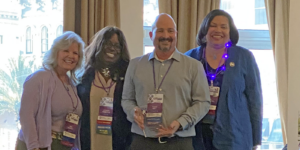
Reducing Bias with Cognitive Psychology
Psychologists often group decision-making into two systems that work together: System 1 makes fast decisions, while System 2 makes slow decisions. [1] [2]
System 1 uses heuristics — mental shortcuts or general rules for making quick decisions. System 1 automatically and unconsciously makes snap judgements that are efficient. Snap judgements are good enough for most daily living activities, but in forensic settings they can lead to errors that have life-altering effects.








